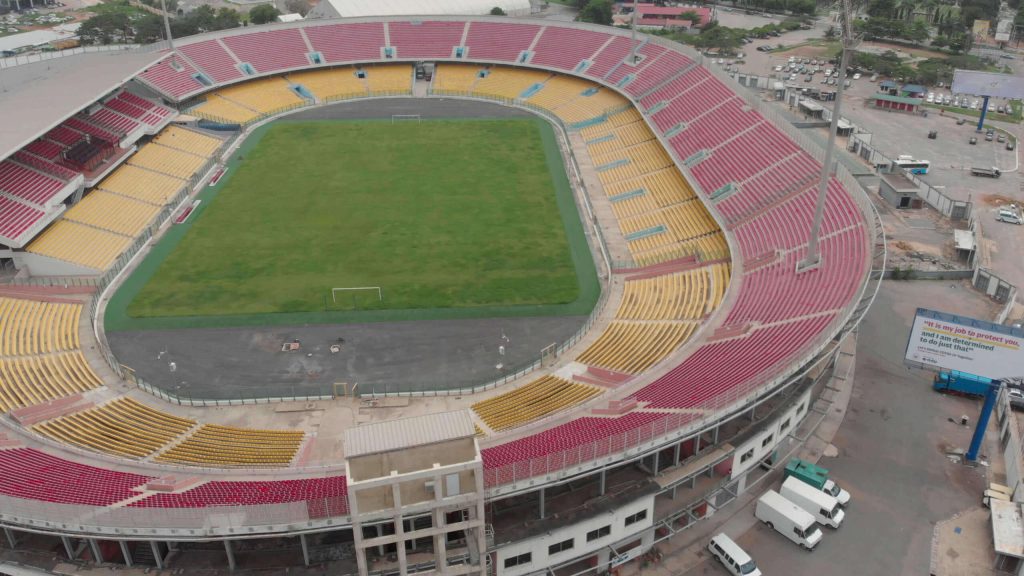Ghana: A Global Talent Exporter with No FIFA-Standard Stadium in 2024
With the dawn of 2024, Ghana stood poised as a powerhouse in world football, boasting a rich history in the game. The Black Stars have participated in the FIFA World Cup four times, placing them among the football elite. Yet, despite these monumental achievements, one glaring issue persists: Ghana, a country with such a proud footballing tradition, still does not have a modern stadium worthy of international standards.
This sums up the journey Ghana has traveled to become a four-time World Cup finalist—a truly remarkable journey. From their indelible debut at the 2006 World Cup, where they made the Round of 16, to becoming quarterfinalists in 2010, Ghana has carved out its name in the history books of football. These successes have been made possible by immense talent, passion, and dedication to the sport from Ghanaian players, coaches, and fans.
With all these successes, one would expect the infrastructure in football to mirror the accomplishments on the field. But this is not the case, as the national stadium, the Accra Sports Stadium, which used to be the pride of the land, now looks worn out. Built in 1960 and redeveloped for the hosting of the 2008 AFCON, it falls short of the standards one would expect from a country with Ghana’s pedigree in football.
The Cape Coast Stadium and Kumasi’s Baba Yara Stadium also hosted national team matches but face similar problems related to wear and tear, outdated facilities, and poor maintenance. The Essipong Sports Stadium and the Alliu Mahama Stadium, located in Sekondi-Takoradi and Tamale, respectively, epitomize the current state of disrepair in the country. According to football enthusiasts, these two stadiums have a small seating capacity with inadequate facilities for any modern experience to be delivered to fans.
For a country that regularly produces world-class talent and inspires millions across the globe, the nonexistence of a top-tier stadium is a glaring omission in its footballing legacy. Ghana’s football administrators and successive governments have often spoken about modern infrastructure. Plans and blueprints for new stadiums have become like ping-pong balls, bouncing between administrations within the corridors of power, remaining largely on paper with very little actual progress.
Ghana’s participation in four World Cup finals should have catalyzed investment and created a sense of urgency for building world-class facilities that match the country’s achievements on the pitch. Yet, Ghana’s home games, even during World Cup qualifiers, take place in facilities that are aging and do not represent the nation’s standing in world football. The views for fans are subpar, and players often lament the condition of the pitches and facilities.
The lack of a standard stadium has implications beyond mere prestige in hosting international matches. Such a facility would spur business, tourism, and job creation at the local level. With an increasing youth population and a growing middle class, the demand for modern sports facilities can no longer be ignored. A modern stadium could serve as the incubator for the next generation of football stars, equipped with proper training facilities, medical centers, and youth academies to nurture young talent and keep Ghana at the forefront of world football.
As we enter 2024, Ghana cannot afford to bear the burden of not having a standard stadium. The government, corporate Ghana, and football administrators must work together to prioritize this national asset. Realizing this dream will require public-private partnerships, international collaborations, and innovative financing models.
The Black Stars have brought immense joy, pride, and unity to Ghanaians through countless memorable moments. It is time for the country to reciprocate that faith by providing a home worthy of their talents. Next-generation, world-class stadiums are not only deserved by the fans for a modern experience but also reflect what the country hopes to achieve in world football.
The dream of raising the World Cup trophy will patiently await its moment as the Black Stars strive for glory. However, running parallel to that dream, like the tracks guiding a train, must be Ghana’s commitment to rectifying the off-pitch situation—starting with a stadium that matches its footballing status. As we stand in 2024, Ghana, a four-time World Cup finalist, finds itself scrambling to prepare a stadium for hosting AFCON qualifiers just 12 days away.
Ghana: A Global Talent Exporter with No FIFA-Standard Stadium in 2024
Written by Eliezer Ahorlu
I'm AHORLU ELIEZER MAWULI JR, your go-to companion for everything sports at SportsBlog247. As a passionate sports enthusiast and blogger, I take you beyond the scores, diving deep into the stories that make each game unforgettable. From heart-pounding victories to game-changing strategies, I’m here to celebrate the highs, analyze the lows, and appreciate the beauty of every sport.





0 Comments